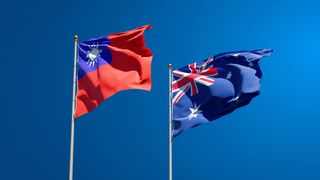When the United States doesn’t have enough room in morgues or masks for healthcare providers, cities, states and the country as a whole will turn where they can for help they desperately need. Some international actors have been quick to flip into first responder mode with their new brand of “mask diplomacy” but exploiting vulnerability for personal gain is hardly new. Help with an agenda or strings attached comes at a cost. Whether it’s losing your economic footing with greater dependency on a foreign supply chain or providing unwitting access to cyber-sensitive information, the costs of receiving aid from bad Samaritans can be felt long after the crisis fades. How great is the cost? Does it outweigh the benefits? What are the risks to look out for?
To discuss these issues, USSC hosted a webinar discussion with Philippe Le Corre, affiliate with the Harvard Kennedy School’s Project on Europe and the Transatlantic Relationship, in a conversation with Dr Gorana Grgic, USSC Lecturer in US Politics and Foreign Policy.
Philippe Le Corre is a Research Associate with the Harvard Kennedy School and a Non-resident Senior Fellow with the Carnegie Endowment for International Peace. He is also a fellow-in-residence at CY Cergy-Paris University.








